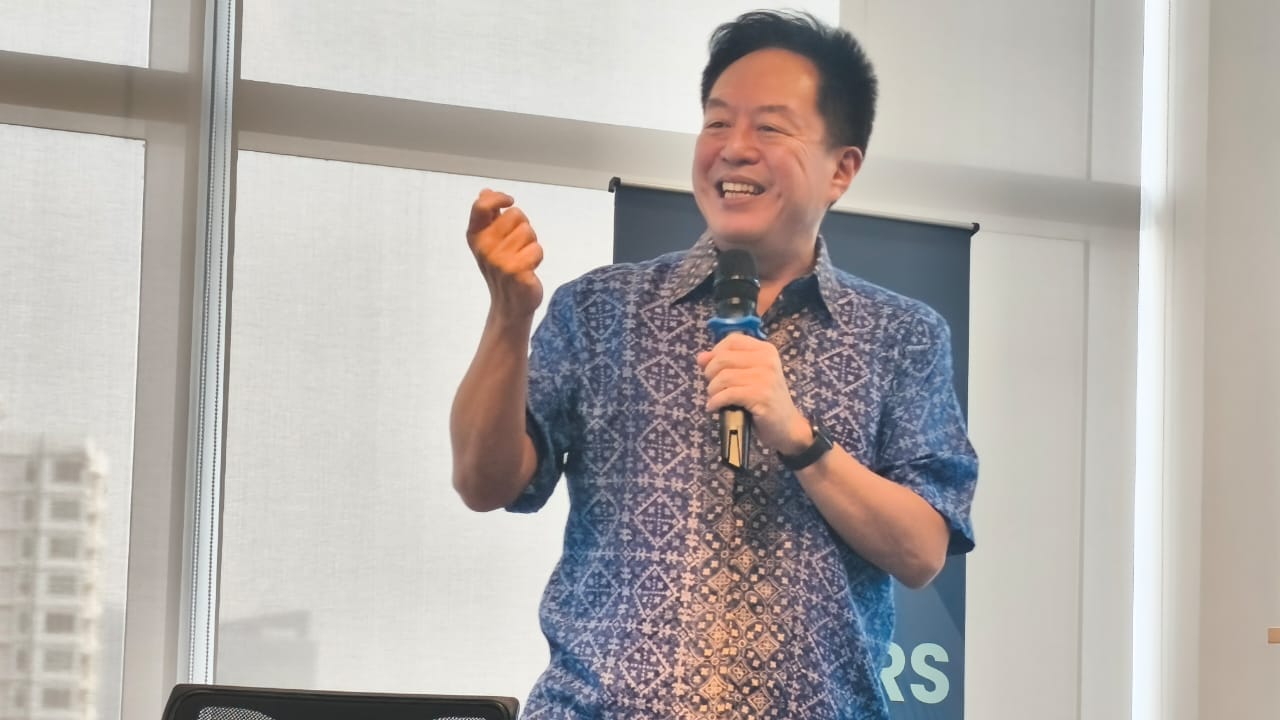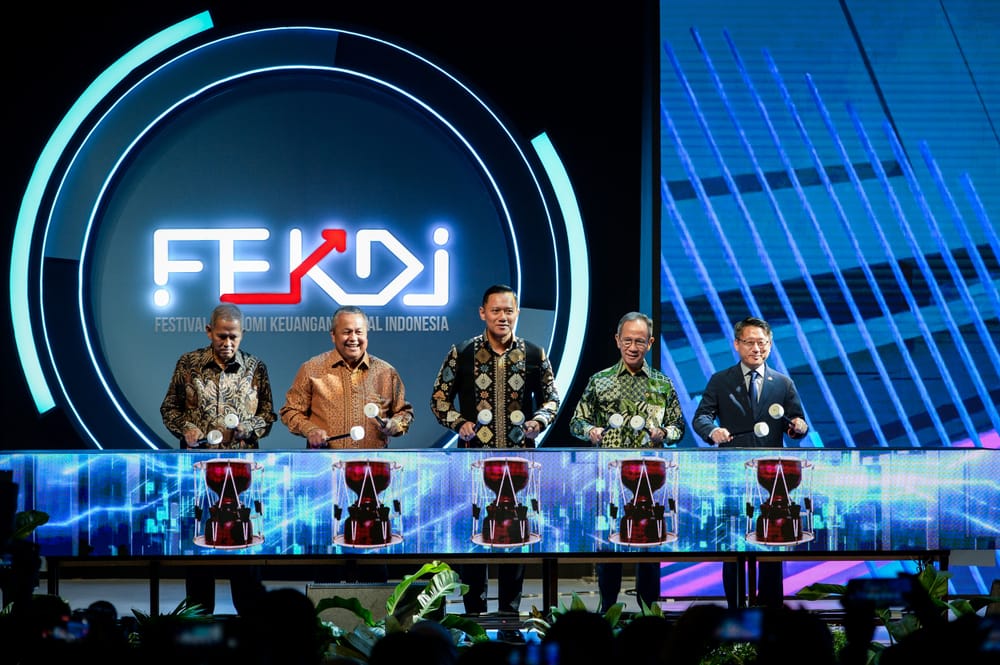There is no single formula for keeping a family business going across generations. Every family has different challenges, histories and solutions. That's the principle held by Victor Hartono - one of the 3rd generation heirs of the Djarum Group business that has crossed various eras and industry sectors.
"What I'm telling you is not a solution for everyone. This is just our family story. Because every situation needs a different approach," Victor said.
Before the Djarum Group was transformed into a giant industry in Indonesia, not many people knew that this family business began as a peanut oil industry in the areas of Rembang, Tuban, and Pati - areas known as peanut farming centers. Victor's grandparents worked on this business. He is in the ninth generation of the peanut oil business.
But, long story short, the family business didn't last long. The reason was that peanut oil was replaced by palm oil, which was predicted to originate from Africa in the early 20th century.
"I used to think peanut oil would last forever. But it doesn't," he said.
For Victor, that history is a constant reminder that business today can sustain life, but does not guarantee the future. The family, he says, has learned to be adaptive to the challenges of technology and the times.
"So, every family must understand where the value comes from, so they know where they want to go. We must be able to absorb the good and the bad from the industry we are in," he said.
Victor admits that business blood runs in his DNA. Armed with their status as Chinese immigrants, the family slowly built a business foundation in Indonesia. One of the turning points occurred in 1927 when his grandfather opened the Cap Leo mercon factory. But again, unfortunately, this business did not last long.
"When the Japanese came in 1942, the Dutch ordered the factory to be closed so that it would not be used by the Japanese. All our gunpowder was taken by the Dutch. Since then there has never been a legal mercon factory again. That was a big trauma for our family," said Victor.
After that difficult time, they continued to survive. They even helped build the Semarang airport runway during the Japanese occupation. For the Victor family, anything was done to stay in business during the transition of power from the Dutch.
He realized there is a mythical third-generation curse in family businesses. Many believe that the third generation often fails to maintain the founder's glory. "That's a myth. But don't blame the third generation. Because the business era developed a lot in the early generations. Many who failed were from there," he said.
He described how the family structure of a business continues to grow from generation to generation. Starting from the first generation started by one founder, then grew to two people in the second generation, there were seven people in the third generation, and 18 people later in the fourth generation.
According to him, the problem of maintaining a business is not an easy one. "Starting from dividend distribution, ego, to leadership. But since childhood I knew I was the third generation relay runner. So I prepared myself," he said.
Now the burden of maintaining the sustainability of the family business rests with his younger brother, Martin Hartono. Not only that, he must also ensure that the transition to the fourth generation can be as smooth as possible.
However, Victor did not bother. Because the choice to join the family business had been thought of early on. The preparation began when choosing a school. At the senior high school level, he chose BPK Penabur High School in Jakarta and then attended Northwestern University. According to him, the choice of school encouraged his way of thinking in order to assist the business transition between generations.
"I know I can only accompany the second, third and fourth generation transitions. That's why I have to prepare myself from the start."
From learning in the classroom and studying other large family businesses spread across Indonesia and the world, Victor came to the conclusion that leadership in business should be a meritocracy, not merely a blood line.
"If my son is not capable, then fine, he can just receive the dividend. But if Martin's son is more suitable, let him lead. That's called meritocracy," he explained.
He cited Roberto Hartono, who is now the number two at Polytron, as an example of merit selection. "I recommended Roberto at that time. Then my father saw that he was getting more mature, and finally he was approved to be on the board of directors. This is what we keep repeating."
The same goes for Natalia's appointment as Djarum's marketing director. "Because she is suitable and has the capacity. That's what we encourage," he said.
Victor understands that not all families keep their businesses forever. There are times when selling is the best decision. He cited the story of the owner of Bakmi GM who finally decided to sell the business because the next generation was not interested.
"Last year we didn't have any plans. But suddenly they came, inviting a bidding. They(founders) are 70-80 years old, have been making bakmi since they were 12. Then the next generation is not interested. Yes, we sold it, it was also a harmonious solution," he said.
The same goes for Soto Pak Denuh in Solo, which completed the business transition through a system of opening branches between family members.
In the Djarum business, he said, the key to family harmony is the main key to business sustainability. All business expansion decisions must be made in open dialog. The dialog that takes place is like a "church assembly" model for decision making. In the internal family, there is even a bureaucracy that takes care of business only, family reunions to funerals.
"From the age of 12, I was already acquainted with a family notary. So that later, when dividing the assets, the portions are clear. There are no 'ani-ani' that suddenly appear," she said.
He even flicked the story of sugar businessman Oei Tiong Ham, who reportedly had 20 wives. The story of this businessman is not without foundation because one of Djarum's offices resulted from the acquisition of the sugar boss's assets. "We learn from that. Don't let there be a second, third, fourth wife. It's better to have a lot of savings than a lot of wives," he said.
Although the family business is now expanding into various sectors, they don't see money as the goal. Victor says that harmony with the earth is what sustains his business.
"We live here too. We want a healthy environment, a strong culture, and a country that keeps winning. Money is a tool. The goal is a better future."
Then, Djarum was transformed into a foundation that actively funds student scholarships, builds infrastructure, and supports sports. "Our concept is to enslave money, not be a slave to money."
Djarum's business expansion outside the cigarette industry is often seen as an ambitious move. But according to him, it was born out of fear. "We are afraid because we have seen our peanut and mercon business die. If it dies, it dies together. So we have to diversify," he said.
So, not surprisingly, Djarum's business ventures into businesses ranging from e-commerce, banking, to sports.
Back to the issue of dividing the roles of family members in the business, this family divides the roles strictly: who is family as well as owner and professional, who is only family, and who is a professional from outside. Victor said that there should be no conflicts of interest that could bring down the business.
"I am family, I am an owner, I am also an employee. But there are also my cousins who are family but not professionals. Everyone has their own role," said Victor.
They also started preparing a family board structure for the family's social and humanitarian affairs. "We have to have someone who takes care of scholarships, reunions, and family graves. This is important to maintain family connections," he says.
Victor realizes that it is not just about maintaining business continuity, the Djarum family is building a value system that is passed down from generation to generation. They believe that legacy is not just an asset, but a life principle: meritocracy, transparency, social responsibility, and the determination to keep learning and adapting.
"We don't want to be slaves to money. We want our families to stay intact, our businesses to be strong, and our country to be better. That's all," he said.





